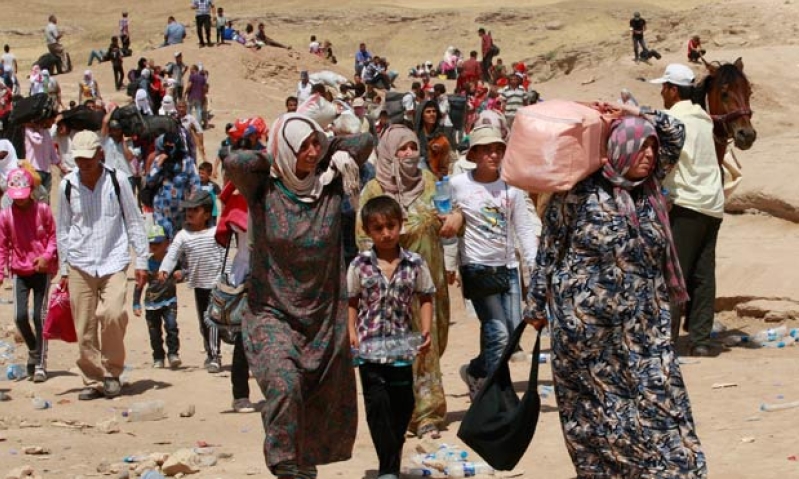
The United States is expected to significantly increase its acceptance of Syrian refugees next year amid a growing humanitarian crisis in the Middle East, the U.S. State Department has revealed.
"As of July 30, the United States has admitted 1,042 Syrian refugees in FY 2015 and anticipates admitting a total of 1,500-1,800 Syrians this fiscal year. We anticipate admitting 5,000-8,000 Syrian refugees in FY 2016," the State Department revealed in written responses to the Senate Judiciary Immigration and the National Interest Subcommittee Republicans, Breitbart News first reported.
Since a revolt against President Bashar al-Assad erupted in mid-March 2011, over 140,000 Syrians have died and another 4 million forced to flee the country, making it the biggest refugee population from a single conflict in a generation, according to the United Nations High Commission on Refugees (UNHCR).
The surrounding states including Turkey, Lebanon, and Jordan have taken on the vast majority of the refugee population, with around 90 percent residing in these countries. In fleeing the country, Syrian refugees face unsafe journeys on boats with no regulation often characterized by sickness and death, the Chicago Monitor notes. The refugees are subsequently resettled into camps, which suffer from overcrowding and lack of resources.
While 968 Syrian refugees have resettled in the United States compared to an average of 30 in the past years, post-Sept. 11 security concerns have made it more difficult to resettle refugees from Syria and other Middle East conflict zones.
"A lot of people are asking me: Is it safe to bring refugees from these countries to the United States?" Anne Richard, U.S. assistant secretary of state for population, refugees and migration, recently told NPR. "So I have to explain that these cases are the most carefully vetted of any travelers to the United States, and nobody comes in without having a Department of Homeland Security interviewer agree that they are, in fact, bona fide refugees."
In a U.S. House hearing last month, Rep. Peter King said while he agrees that "the vast majority of Syrian refugees do not have ties to terror groups," he is concerned that with the current security vetting procedures, there "is the lack of on-the-ground intelligence necessary to identify terror links."
He warned that "with the lack of stable foreign governments, foreign intelligence agencies, military intelligence, US embassy support, and access to human intelligence on the ground in Syria, the information and intelligence that we are able to acquire regarding individuals who seek to enter the US is limited, and often times, unverifiable."
"This significantly degrades the quality and accuracy of our vetting process.The U.S. has seen the danger of flawed refugee vetting, as well as the potential for refugees to be radicalized once they are in the US," he said, citing cases of two Iraqi refugees who were arrested in May 2011 in Kentucky and charged with conspiracy to kill U.S. nationals abroad as well as the Tsarnaev brothers who plotted the Boston Marathon attacks.
According to Breitbart, the State Department acknowledged that it could not say that ISIS or other terror organizations would not be admitted in the process, but emphasized that its current screening efforts have been successful in the past.
"While no security screening program can guarantee a 100 percent success rate, the vast majority of refugees who have cleared the current security screening regime for admission to the U.S., including from some of the most troubled regions in the world, have proven to be peaceful additions to our society and, in time, productive citizens," the State Department explained, noting that the focus would be on admitting the "most vulnerable Syrians - particularly female-headed households, children, survivors of torture, and those with severe medical conditions."
The State Department also noted that while there are undoubtedly "risks," the government will continue to work to reduce them.
"The Administration recognizes that there are risks associated with the increased admission of Syrian refugees, just as there are risks associated with the admission of other travelers to the U.S., including from other unstable environments. We are working diligently every day to reduce those risks," the State Department said.







